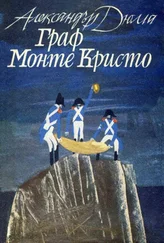| "Ma foi, my dear viscount, you are fated to hear music this evening; you have only escaped from Mademoiselle Danglars' piano, to be attacked by Haidee's guzla." |
- Я вижу, дорогой виконт, вы сегодня обречены слушать музыку; не успели вы избавиться от рояля мадемуазель Данглар, как попадаете на лютню Гайде. |
| "Haidee-what an adorable name! |
- Гайде! Чудесное имя! |
| Are there, then, really women who bear the name of Haidee anywhere but in Byron's poems?" |
Неужели не только в поэмах лорда Байрона есть женщины, которых зовут Гайде? |
| "Certainly there are. Haidee is a very uncommon name in France, but is common enough in Albania and Epirus; it is as if you said, for example, Chastity, Modesty, Innocence,-it is a kind of baptismal name, as you Parisians call it." |
- Разумеется; во Франции это имя встречается очень редко; но в Албании и Эпире оно довольно обычно; оно означает целомудрие, стыдливость, невинность; такое же имя, как те, которые у вас дают при крещении. |
| "Oh, that is charming," said Albert, "how I should like to hear my countrywomen called Mademoiselle Goodness, Mademoiselle Silence, Mademoiselle Christian Charity! |
- Что за прелесть! - сказал Альбер. - Хотел бы я, чтобы наши француженки назывались мадемуазель Доброта, мадемуазель Тишина, мадемуазель Христианское Милосердие! |
| Only think, then, if Mademoiselle Danglars, instead of being called Claire-Marie-Eugenie, had been named Mademoiselle Chastity-Modesty-Innocence Danglars; what a fine effect that would have produced on the announcement of her marriage!" |
Вы только подумайте, если бы мадемуазель Данглар звали не Клэр-Мари-Эжени, а мадемуазельЦеломудрие-Скромность-Невинность Данглар! Вот был бы эффект во время оглашения! |
| "Hush," said the count, "do not joke in so loud a tone; Haidee may hear you, perhaps." |
- Сумасшедший! - сказал граф. - Не говорите такие вещи так громко. Гайде может услышать. |
| "And you think she would be angry?" |
- Она рассердилась бы на это? |
| "No, certainly not," said the count with a haughty expression. |
- Нет, конечно, - сказал граф надменным тоном. |
| "She is very amiable, then, is she not?" said Albert. |
- Она добрая? - спросил Альбер. |
| "It is not to be called amiability, it is her duty; a slave does not dictate to a master." |
- Это не доброта, а долг; невольница не может сердиться на своего господина. |
| "Come; you are joking yourself now. |
- Ну, теперь вы сами шутите! |
| Are there any more slaves to be had who bear this beautiful name?" |
Разве еще существуют невольницы? |
| "Undoubtedly." |
- Конечно, раз Гайде моя невольница. |
| "Really, count, you do nothing, and have nothing like other people. |
- Нет, правда, вы все делаете не так, как другие люди, и все, что у вас есть, не такое, как у всех! |
| The slave of the Count of Monte Cristo! |
Невольница графа Монте-Кристо! |
| Why, it is a rank of itself in France, and from the way in which you lavish money, it is a place that must be worth a hundred thousand francs a year." |
Во Франции - это положение. Притом, как вы сорите золотом, такое место должно приносить сто тысяч экю в год. |
| "A hundred thousand francs! |
- Сто тысяч экю! |
| The poor girl originally possessed much more than that; she was born to treasures in comparison with which those recorded in the |
Бедная девочка имела больше. Она родилась среди сокровищ, перед которыми сокровища |
| ' Thousand and One Nights' would seem but poverty." |
"Тысячи и одной ночи" - просто пустяки. |
| "She must be a princess then." |
- Так она в самом деле княжна? |
| "You are right; and she is one of the greatest in her country too." |
- Вот именно, и одна из самых знатных в своей стране. |
| "I thought so. |
- Я так и думал. |
| But how did it happen that such a great princess became a slave?" |
Но как же случилось, что знатная княжна стала невольницей? |
| "How was it that Dionysius the Tyrant became a schoolmaster? |
- А как случилось, что тиран Дионисий стал школьным учителем? |
| The fortune of war, my dear viscount,-the caprice of fortune; that is the way in which these things are to be accounted for." |
Жребий войны, дорогой виконт, прихоть судьбы. |
| "And is her name a secret?" |
- А ее происхождение - тайна? |
| "As regards the generality of mankind it is; but not for you, my dear viscount, who are one of my most intimate friends, and on whose silence I feel I may rely, if I consider it necessary to enjoin it-may I not do so?" |
- Для всех - да; но не для вас, дорогой виконт, потому что вы мой друг и будете молчать, если пообещаете, правда? |
| "Certainly; on my word of honor." |
- Даю вам честное слово! |
| "You know the history of the Pasha of Yanina, do you not?" |
- Вы слышали историю янинского паши? |
| "Of Ali Tepelini? [*] Oh, yes; it was in his service that my father made his fortune." |
- Али-Тебелина? Конечно, ведь мой отец приобрел свое состояние у него на службе. |
| "True, I had forgotten that." * Ali Pasha, "The Lion," was born at Tepelini, an Albanian village at the foot of the Klissoura Mountains, in 1741. By diplomacy and success in arms he became almost supreme ruler of Albania, Epirus, and adjacent territory. Having aroused the enmity of the Sultan, he was proscribed and put to death by treachery in 1822, at the age of eighty.-Ed. |
- Да, правда, я забыл. |
| "Well, what is Haidee to Ali Tepelini?" |
- А какое отношение имеет Г айде к Али-Тебелину? |
| "Merely his daughter." |
- Она всего-навсего его дочь. |
| "What? the daughter of Ali Pasha?" |
- Как, она дочь Али-паши? |
| "Of Ali Pasha and the beautiful Vasiliki." |
- И прекрасной Василики. |
| "And your slave?" |
- И она ваша невольница? |
| "Ma foi, yes." |
- Да. |
| "But how did she become so?" |
- Как же так? |
| "Why, simply from the circumstance of my having bought her one day, as I was passing through the market at Constantinople." |
- Да так. Однажды я проходил по константинопольскому базару и купил ее. |
| "Wonderful! |
- Это великолепно! |

![Агата Кристи - На краю [английский и русский параллельные тексты]](/books/32247/agata-kristi-na-krayu-anglijskij-i-russkij-paralle-thumb.webp)
![Агата Кристи - Объявлено убийство [английский и русский параллельные тексты]](/books/33247/agata-kristi-obyavleno-ubijstvo-anglijskij-i-russ-thumb.webp)




![Александр Дюма - Граф Монте-Кристо [сборник litres]](/books/431076/aleksandr-dyuma-graf-monte-kristo-sbornik-litres-thumb.webp)